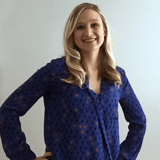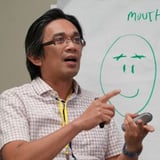Summary
In this talk, Steve recounts a difficult user research project for a fintech client focused on small business owners. He faced challenges recruiting participants due to opaque internal communication, unreachable colleagues, and a tight market of participants. After resorting to an unfamiliar recruiting agency, Steve encountered a participant suspicious and uncomfortable about the research intentions and the presence of two interviewers in a cramped space. The participant’s concerns about the interview’s purpose and incentive payments led to tense interactions, though ultimately he connected with Steve on LinkedIn. Reflecting on this, Steve introduces the concept of research war stories—personal narratives of struggles and failures in the field shared by researchers like Susan Simon Daniels, Randy Duke II, and Tamara Hale. Drawing from insights by George Dawes Green and Priya Parker, Steve emphasizes the importance of vulnerability, empathy, and storytelling to normalize failure and improve research practice. He encourages researchers to openly share their experiences to foster a supportive community where learning from mistakes is embraced as part of the craft. The talk closes with an invitation to contribute to an ongoing blog and the announcement of upcoming stories from other researchers.
Key Insights
-
•
Recruitment for user research can be hindered by internal communication breakdowns and limited participant pools.
-
•
Miscommunications between recruiters, participants, and researchers increase participant discomfort and complicate interviews.
-
•
Even polite participant pushback can feel confrontational during an emotionally charged interview.
-
•
Researchers often overcompensate with people-pleasing behaviors when rapport feels uncertain, which is counterproductive.
-
•
War stories capture the vulnerability and humanity inherent in research failures and challenges.
-
•
Sharing stories of failure helps researchers gain empathy for themselves and others, reducing harsh self-judgment.
-
•
Failure is inevitable in qualitative research and can provide crucial learning and personal growth opportunities.
-
•
Understanding research as a human endeavor involves managing unpredictability, emotion, and complex social dynamics.
-
•
Storytelling fosters community among researchers by normalizing failures and providing permission to be imperfect.
-
•
The value of research lies not only in findings but also in how experiences shape researchers permanently.
Notable Quotes
"It felt aggressive and angry and I spent the remainder of the interview feeling uncertain about our rapport."
"It’d be nice if we had someone to blame, but none of these are true."
"You probably have messed up. You probably will mess up. It’s inevitable and it’s okay."
"A story is about a decision that you made. It’s not about what happens to you."
"When you touch this vulnerability, people feel this ira comfort. I went through that myself."
"We tend to characterize our own experience in new or unexpected situations as messing up."
"Empathy is how you can more safely acknowledge that failure comes for us all."
"These war stories give you permission slips for your inevitable failures to come."
"The people doing the research are human, and the people we want to learn from are human."
"Sharing stories of failure normalizes thoughtful and transparent consideration of the work that we do."
Or choose a question:
















More Videos

"UX research marketing is the strategy behind and implementation of intentional effective promotion and communication of who UX research is and what UX research does."
Molly FargotsteinMultipurpose Communication & UX Research Marketing
September 12, 2019

"Design operators must create scaffolding that shapes design practice, not just produce deliverables."
Dave MaloufClosing Keynote: Amplify. Not Optimize.
October 24, 2019

"AI gives feedback that’s generally conventional and middle-of-the-road, so you need to verify its output."
Jorge ArangoAI as Thought Partner: How to Use LLMs to Transform Your Notes (3rd of 3 seminars)
May 3, 2024

"The AI is looking through material and that material’s changing every day."
Daniel J. RosenbergDesigning with and for Artificial Intelligence
August 11, 2022

"Accessibility is innovation and this statement could potentially be some unchecked ableism."
Alexis LucioScaling Accessibility Through Design Systems
June 9, 2022

"Design operators continuously improve the circumstances for designers and the design organization to increase the chances of good design happening."
Peter BoersmaHow to Define and Maintain a DesignOps Roadmap
October 3, 2023

"Art and visuals help represent what people cannot see, but only with strategic intention and understanding."
Ben Reason Aline Horta Majid Iqbal Fabiano LeoniMaking the system visible: The fastest path to better decisions
November 20, 2025

"AI in design can act as a creative companion, helping explore ideas and analyze past research more efficiently."
Peter Van Dijck Louis RosenfeldCoffee with Lou #4: Taking a Peek Under the Rosenbot's Hood
June 14, 2024

"Technology is a series of choices designers and technologists make, often small but impactful; we must demand better choices that work for all of us."
Taylor KlassmanShaping the Next Era of UX Research: Collaborative Forum
March 11, 2025
















